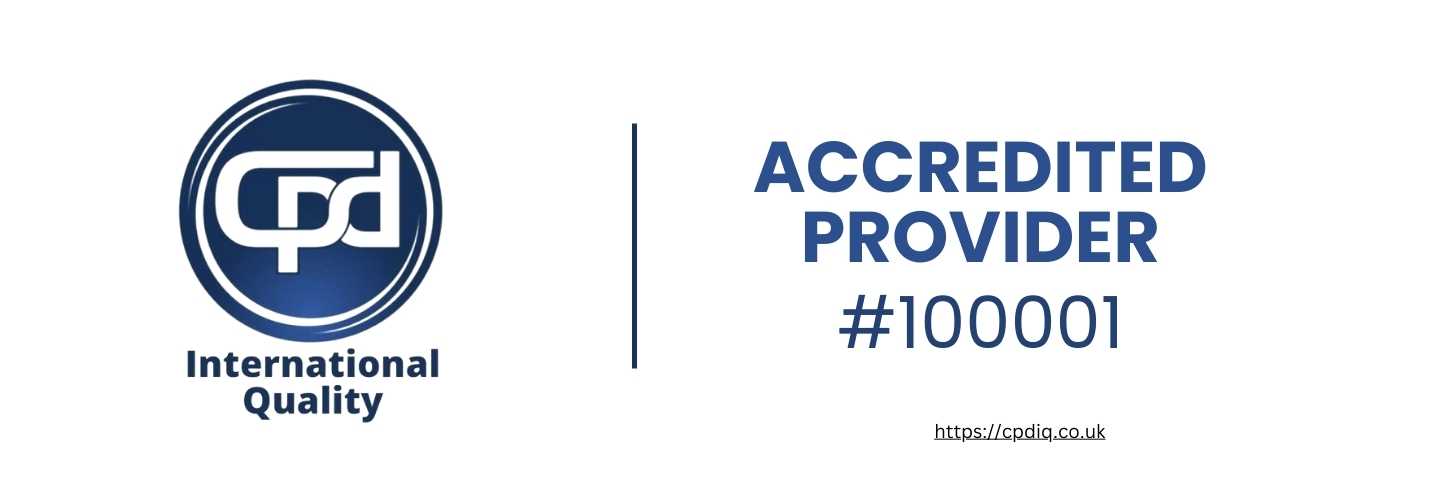Business Management During Recession
NEW YEAR SPECIAL! 1500+ COURSES AT ONLY £99 FOR LIFE. FIND OUT MORE
Business Management During Recession
🌟 Unlock the Secrets to Thriving in Turbulent Times with Business Management During Recession Course! 🌟
In the ever-evolving landscape of the business world, one thing remains certain: change is inevitable. And in times of economic downturns and recessions, businesses face unprecedented challenges. But what if you could turn adversity into opportunity? Introducing our transformative course, Business Management During Recession!
🚀 Benefits of Taking Our Course:
- Strategic Resilience: Learn how to navigate through economic downturns with resilience and strategic foresight. Discover actionable strategies to adapt your business model, streamline operations, and identify new growth opportunities even in the toughest of times.
- Financial Agility: Gain insights into managing finances effectively during a recession. Understand cash flow management, cost-cutting strategies, and smart investment decisions to safeguard your business’s financial health and emerge stronger than ever.
- Leadership Excellence: Equip yourself with the leadership skills necessary to inspire and motivate your team during challenging times. Learn how to foster a culture of innovation, collaboration, and adaptability to steer your organization towards success despite economic uncertainties.
- Market Adaptation: Explore innovative ways to pivot your business and adapt to changing market dynamics. From rebranding strategies to exploring new market segments, discover how to stay ahead of the curve and maintain a competitive edge.
- Risk Management: Master the art of risk management and contingency planning to mitigate potential threats to your business. Identify key risk factors, develop contingency plans, and ensure business continuity even in the face of adversity.
- Networking Opportunities: Connect with industry experts and fellow entrepreneurs to exchange insights, best practices, and valuable resources. Expand your professional network and gain access to exclusive opportunities for collaboration and growth.
🎯 Who is this for?
- Entrepreneurs: Whether you’re a seasoned entrepreneur or just starting your journey, this course is tailored to help you navigate the complexities of managing a business during a recession. Gain the knowledge and tools you need to not only survive but thrive in turbulent economic times.
- Business Owners: As a business owner, staying ahead of the curve is essential for long-term success. This course provides invaluable insights and strategies to help you adapt your business model, protect your bottom line, and position your company for sustained growth.
- Managers and Executives: For managers and executives tasked with steering their organizations through economic uncertainties, this course offers essential guidance and practical solutions. Enhance your leadership skills, financial acumen, and strategic decision-making abilities to lead your team with confidence and resilience.
- Students and Professionals: Whether you’re a student aspiring to enter the world of business or a seasoned professional looking to expand your skill set, this course offers a valuable opportunity to deepen your understanding of business management in challenging economic environments.
🚀 Career Path:
- Business Consultant: Armed with expert knowledge in business management during recessions, you’ll be equipped to offer strategic guidance and advisory services to businesses seeking to navigate through turbulent economic times.
- Financial Analyst: Specialize in analyzing market trends, assessing risk factors, and advising businesses on financial strategies to mitigate the impact of recessions and maximize profitability.
- Entrepreneur: Launch and grow your own business ventures with confidence, knowing that you have the skills and knowledge to adapt and thrive in any economic climate.
- Corporate Leader: Rise through the ranks of corporate leadership by demonstrating your ability to steer organizations through economic downturns with resilience, innovation, and strategic vision.
Don’t let economic downturns dictate the fate of your business. Empower yourself with the knowledge, skills, and strategies to not only survive but thrive in turbulent times. Enroll in our Business Management During Recession course today and take the first step towards a brighter and more resilient future for your business! 🌟
FAQ (Frequently Asked Questions) – Business Management During Recession
Q1: What are the key strategies for managing a business during a recession?
A recession requires businesses to adapt and strategize effectively to navigate through challenging economic times. Key strategies include implementing cost-cutting measures such as reducing discretionary spending, renegotiating contracts with suppliers, and optimizing operational efficiency. Additionally, diversifying revenue streams, focusing on customer retention, and investing in marketing efforts to maintain brand visibility are crucial. Businesses should also prioritize cash flow management, maintaining adequate reserves, and exploring opportunities for innovation and strategic partnerships.
Q2: How can businesses protect themselves from the impact of a recession?
Businesses can protect themselves from the impact of a recession by proactively assessing their financial health and implementing risk mitigation strategies. This includes building up cash reserves during periods of economic growth, reducing debt obligations, and maintaining a strong relationship with lenders or investors. Businesses should also continuously monitor market trends and adjust their strategies accordingly, diversifying their customer base and product offerings to reduce vulnerability to economic downturns.
Q3: What role does leadership play in managing a business during a recession?
Leadership plays a critical role in guiding businesses through challenging economic conditions. Effective leaders must inspire confidence, foster resilience among employees, and communicate transparently about the company’s goals and challenges. They should also demonstrate adaptability and decisiveness in making tough decisions, such as restructuring or downsizing if necessary, while prioritizing the well-being of their workforce. Moreover, leaders should lead by example, staying informed about industry trends and best practices, and encouraging a culture of innovation and continuous improvement.
Q4: How can businesses maintain employee morale and engagement during a recession?
Maintaining employee morale and engagement during a recession is essential for sustaining productivity and retaining talent. Businesses can achieve this by fostering open communication channels, providing regular updates about the company’s performance and future plans, and soliciting feedback from employees on ways to improve operations. Offering opportunities for professional development, recognizing and rewarding employee contributions, and promoting a positive work-life balance can also boost morale. Additionally, transparent and empathetic leadership, coupled with a supportive company culture, can help alleviate anxiety and uncertainty among employees.
Q5: What resources are available to businesses for managing through a recession?
Businesses have access to various resources and support mechanisms to help them navigate through a recession. Government agencies often provide assistance programs, grants, or tax incentives aimed at supporting small businesses during economic downturns. Additionally, industry associations, chambers of commerce, and business networks offer resources such as workshops, training programs, and mentorship opportunities. Financial institutions may provide guidance on accessing credit or restructuring debt to improve liquidity. Moreover, consulting firms and business advisors can offer tailored advice and strategies based on industry-specific challenges and opportunities. By leveraging these resources, businesses can better position themselves to weather the effects of a recession and emerge stronger in the long run.
Extra Included :
Accredited Certificate Available
Unlimited Access and Retakes
Free Enrollment Letter Included
CPD International Quality Accredited
Meets UK & EU legal requirements
Instant e-certificate and eligibility of ordering hardcopy
Developed by Industry Experts
Learn anytime from anywhere
Use any internet-connected device
24/7 Live Support
Discounts on bulk purchases
Certification
Perfect for showcasing your skills, boosting your career, and enhancing your professional profile.
Choose the format that works best for you:
-
PDF Certificate (£9.99) – Download instantly to add to your portfolio, résumé, LinkedIn, or share on social media.
-
Printed Hard Copy (£29.99) – A beautifully designed certificate delivered to your door, ready to proudly display in your office or home.
-
Both PDF & Printed Hard Copy (£31.99) – Get the best of both worlds!

Anyone that is looking to develop their skills in the subjects of the course or improve their professional outcomes are welcome to take these courses.
Our courses are assured and accredited by several organisations including CPD IQ, IOAS, CPD Group, and more. All of our courses are CPD accredited.
You are eligible for a course certificate upon completion. In some cases, you will need to purchase the certificate. In the purchase details, you will need to include the course details. Or you could also go to this link and submit your details after purchase.
There are all kinds of contents you can find on our site. This includes PDF files, videos, and extra materials. Also, most courses come with assessments that you will need to complete.
All you have to do is buy the course. This means that you have to add the course to cart and then complete the steps to purchase. Once you have completed the purchase, you can find it in your user dashboard.
Course Contents
Course Content
Module 1 Weathering The Storm
-
Weathering The Storm
00:00
Module 2 Understanding The Mortgage Meltdown
Module 3 Personal Development
Module 4 Economic Recession Strategy
Module 5 Recession Proofing
Student Ratings & Reviews

Want to receive push notifications for all major on-site activities?












